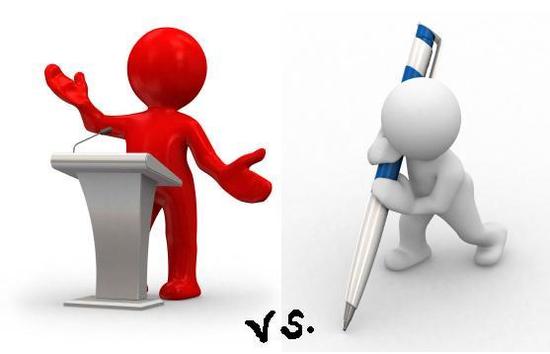Spoken language Spoken language is a form of human communication in which words derived from a large vocabulary (usually at least 10,000) together with a diverse variety of names are uttered through or with the mouth. All words are made up from a limited set of vowels and consonants. The spoken words they make are stringed into syntactically organized sentences and phrases. The vocabulary and syntax together with the speech sounds it uses define its identity as a Particular language. Some human languages exist with their own vocabularies and syntax that are not spoken but use sign gestures. Sign languages have the same natural origin as spoken languages, and the same grammatical complexities, but use the hands, arms, and face rather than parts of the mouth as their place of articulation. Many spoken languages are written. However, even today, there are many world languages that can be spoken but have […]
Five news stories
News Story No. 1 The Network for Consumer Protection has expressed concern at the dramatic increase in sugar price and alleged that sugar barons having clout in the government have created an artificial shortage. Sugar price has surged to an all-time high of Rs120 per kg in a week from Rs85 on Oct 31, proving that the government has miserably failed to keep a check on food prices and provide relief to consumers, a press release issued by the organisation said on Tuesday. Its executive coordinator, Dr Arif Azad, said roots of the problem lay in the sugar lobby’s political clout in determining sugar output, timing of import and scaremongering about rises in prices. “For the sake of protecting consumers from artificially inflated sugar price rises, the government has to bring in regulatory measures to rein in the power of sugar lobby,” he said. He called for an investigation to […]
Guidelines of precise writing
It was not so in Greece, where philosophers professed less, and undertook more. Parmenides pondered nebulously over the mystery of knowledge; but the pre-Socratics kept their eyes with fair consistency upon the firm earth, and sought to ferret out its secrets by observation and experience, rather than to create it by exuding dialectic; there were not many introverts among the Greeks. Picture Democritus, the Laughing Philosopher; would he not be perilous company for the desiccated scholastics who have made the disputes about the reality of the external world take the place of medieval discourses on the number of angles that could sit on the point of a pin? Picture Thales, who met the challenge that philosophers were numskulls by “cornering the market” and making a fortune in a year. Picture Anaxagoras, who did the work of Darwin for the Greeks and turned Pericles form a wire-pulling politician into a thinker […]
Elaborate the differences between journalistic and literary writing
Journalistic writing Joseph Pulitzer, a famous publisher in the 1800s, stressed one of the most important qualities of journalistic writing in his memorable command: “ Accuracy! Accuracy! Accuracy!” Roger Mudd’s quote on the first slide refers to another important quality of journalistic writing: objectivity. In addition, all journalistic writing should be clear, concise and colorful. Nothing is more embarrassing or unprofessional than writing and publishing a story that has factual inaccuracies. As a reporter, we were responsible for the information printed in your story. Review everything carefully. Our reputation, and that of your publication, is at stake. Double-check the spellings of student, faculty, and staff names, as well as grade levels and titles. Refer to official documents listing this information, such as homeroom lists or a school directory. Keep a current phone book and an atlas handy to double-check the names of organizations and places. Double-check dates, using a calendar […]
Write a detailed note on different forms of Journalistic writing
There are following different forms of Journalistic writing the details is as under 1. News writing News writing follows a basic formula; there are key elements every news story follows. While styles can diverge more dramatically depending on the kind of story a feature story may look and sound very different than a hard news one all news stories are cut from the same mold. The first element of news writing is, of course, to deliver the news. Most people have heard of the 5 W’s, even if they’ve never taken a journalism class. The W’s in question, as you probably know, refer to the Who, What, When, Where and Why that every story should address. Depending on what the story is, how and when you answer those W’s may change. If, for example, you’re reporting on a drive-by shooting in a city, we likely start with where the crime […]
differences between spoken and written language
Spoken language Spoken language is a form of human communication in which words derived from a large vocabulary (usually at least 10,000) together with a diverse variety of names are uttered through or with the mouth. All words are made up from a limited set of vowels and consonants. The spoken words they make are stringed into syntactically organized sentences and phrases. The vocabulary and syntax together with the speech sounds it uses define its identity as a Particular language. Some human languages exist with their own vocabularies and syntax that are not spoken but use sign gestures. Sign languages have the same natural origin as spoken languages, and the same grammatical complexities, but use the hands, arms, and face rather than parts of the mouth as their place of articulation. Many spoken languages are written. However, even today, there are many world languages that can be spoken but have […]
